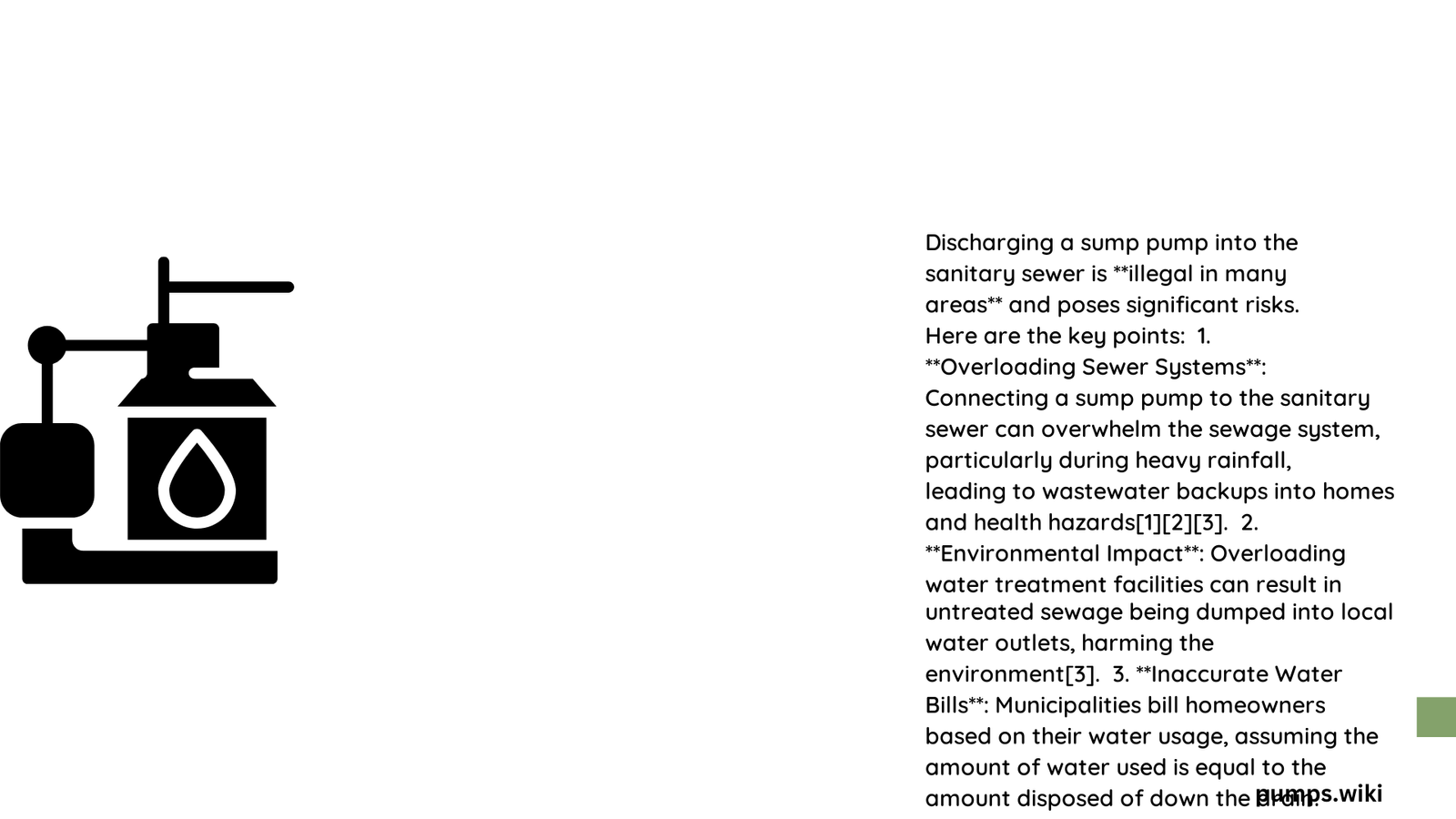Discharging sump pump water into sanitary sewer systems is a complex issue that homeowners must carefully navigate. Municipalities strictly prohibit direct connections to sanitary sewers, imposing significant legal and environmental consequences. Improper discharge can lead to infrastructure strain, potential fines, and environmental contamination, making it crucial to understand proper drainage alternatives and local regulations.
What Are the Legal Restrictions for Sump Pump Discharge?
Municipalities universally prohibit discharging sump pump water directly into sanitary sewer systems. This restriction stems from several critical concerns:
Environmental and Infrastructure Implications
- System Overload: Sanitary sewers are designed for wastewater, not groundwater
- Treatment Cost Increases: Clear water requires unnecessary processing
- Potential Infrastructure Damage: Excess water strains municipal systems
Why Can’t Homeowners Discharge into Sanitary Sewers?

| Restriction Type | Specific Limitation | Potential Consequence |
|---|---|---|
| Municipal Code | Direct Sewer Connection | $50-$500 Fines |
| Environmental | Wastewater Treatment Burden | Increased Community Costs |
| Infrastructure | System Capacity Strain | Potential Sewage Backup |
Recommended Discharge Alternatives
Homeowners have several approved methods for sump pump water management:
- Storm Sewer Connection
- Requires municipal permit
- Professional installation recommended
-
Ensures proper water redirection
-
Dry Well Installation
- On-property water absorption
- Minimal municipal intervention
-
Cost-effective long-term solution
-
Landscape Drainage
- Direct water away from foundation
- Utilize natural ground slope
- Prevent water accumulation near structure
How to Legally Manage Sump Pump Discharge?
Professional assessment remains critical. Homeowners should:
- Contact local municipal water department
- Obtain necessary discharge permits
- Have professional evaluate property’s specific drainage needs
- Ensure compliance with local building codes
Technical Considerations for Proper Discharge
Effective sump pump discharge requires understanding:
- Water Volume: Gallons per minute capacity
- Pipe Material: Durability and corrosion resistance
- Discharge Distance: Minimum recommended separation from foundation
What Are Potential Penalties for Improper Discharge?
Municipalities enforce strict penalties:
– Initial Warning
– Monetary Fines ($50-$500)
– Mandatory System Correction
– Potential Legal Action
Professional Recommendations
- Schedule professional drainage assessment
- Obtain municipal discharge permits
- Install approved drainage systems
- Maintain regular system inspections
Conclusion
Navigating sump pump discharge regulations requires careful planning, professional guidance, and strict adherence to municipal codes. Homeowners must prioritize legal, environmentally responsible water management strategies.
Reference:
– Village of Larchmont Regulations
– Municipal Drainage Guidelines
– Environmental Protection Agency Water Management
